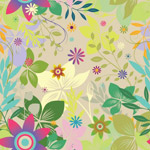The Lilliput Press, Dublin
xx + 547pp, £30.00
[dropcap]J[/dropcap]ohn was an interesting man. Born and bred in Ireland but from a protestant background, for most of his life he had no interest in religion. He was primarily a musician, but in ways that were unusual. For instance, he scorned Handel and other late baroque composers. He and his colleague Michael Morrow provided certain elements in his style, but John was for many years involved in his Musica Reservata from 1956 until 1973. Many young early musicians were involved. The repertoire covered a wide range, but chiefly in the earlier stages revolving on music from the around the 13th century till the 17th. Strange that I didn’t hear him until their first concert at the South Bank on 1 July 1967, with 35 players: do read Anthony Rooley’s remarks from BBC Radio 3 in 1998 (p. 178). I was involved in a wide variety of concerts and meetings with small choirs. John coached a viol ensemble in Chiswick in the mid-1960s: it was much later that John learnt how to play the instrument. He had a rigorous beat – his value was ideal for some music, but there was little additional information. It took some time for him to use his left hand to clarify anything that might aid the performers.
John subsequently spent much of his time in Ireland, particularly for concerts of Bach cantatas – 39 between 1973 and 1983, though the religious aspects were of little interest: it was the music that mattered. In earlier days, John produced a harpsichord for the Passions – the idea that the organ is the appropriate was unknown and the size of the forces are still unauthentic! John presented a broadcast on Radio 3 called “Early Birds” on 23 September 1988 on the revival of early music, starting with Dolmetsch, including a clavichord. Violet Gordon Woodhouse was claimed as “the first person ever to record harpsichord music”. Wanda Landowska played a Scarlatti Sonata in G (how can it be identified?) on a Pleyel harpsichord. I’m puzzled that Nadia Boulanger was reluctant to play Monteverdi, though some was recorded; the item performed was Chiome d’oro with two tenors and a piano, Thomas Brinkley (?) led the Studio for Early Music in Munich and August Wenzinger the Schola Cantorum Basiliensis – this sentence is far more plausible than the earlier ones. Michael Tippett was primarily a composer, though he did work at Morley College in the 1940s. Alfred Deller was the first distinguished counter-tenor, not then going above top C but they now sing higher. I was at the Dartington course one year, but I couldn’t stand Walter Bergman telling me how to play continuo! As far as I can remember, Thurston Dart was fine. In fact, this list needs to be updated – early music has improved enormously, though some of it may be excessive!
John’s partner bought a small house in Azof Rd, Greenwich, which often was let out, but eventually it became John’s home when he moved back to London and joined the BBC Music Department in Egton House – mostly providing introductions for programmes like Composer of the Week. John had given up composing, but earlier on, he provided music for radio, often in a contemporary style, including music for his cousin Samuel, who lived in Paris but visited England as well. He travelled widely: to perform, to visit friends, to take holidays, which he enjoyed. As he retired, he tended to enjoy music that he had originally avoided. He died suddenly on 5th February 2007 and was cremated at Lewisham Crematorium on 16 February 2007.
As far as I can tell, the book is accurate. It is readable, though I often needed to find the year of the date. The Appendices run through A (Compositions), B (Discography), C (RTE), D (BBC), E (Musica Reservata concerts), F (Bach Cantata Series at St Ann’s Church. Dublin). There are 25 pictures on 12 pages between p.268 & 269. Finally, there is a bibliography and an index. This is, however, a book about the man, but without much information on the music. It would be interesting if anyone who knew him as a musician, another book would be worth publishing – or perhaps covered by different writers, for instance between early-music events and contemporary modern bits for radio programmes.
Clifford Bartlett
